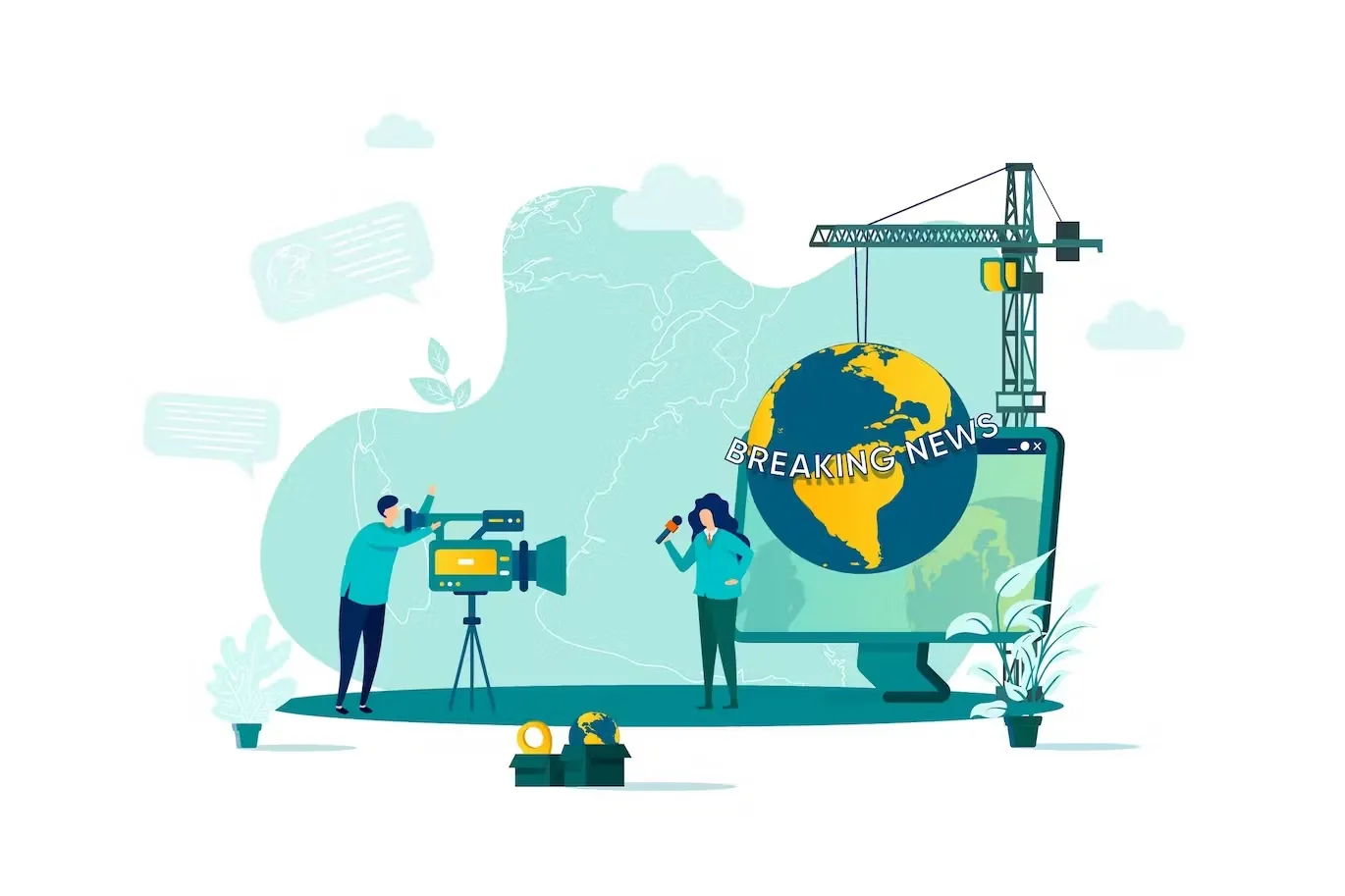Spellbrand Blog
Eco-Branding: Harnessing the Power of Sustainability

In the contemporary commercial landscape, where the repercussions of climate change are distinctly perceptible, the onus is on businesses to prioritize sustainability. Especially for startups, this extends beyond curtailing their environmental footprint to molding consumer perceptions through green branding.
One startup we helped brand leads the charge by producing its products with an unyielding focus on environmental sustainability.
The fascinating aspect is their eco-friendly practices and how they have leveraged them in their marketing strategy. By thoroughly understanding the mindset of planet-conscious consumers, the company has devised a unique brand proposition that emphasizes its environmental commitment, successfully captivating the attention of these consumers.

Harnessing Consumer Insights for Green Branding
Market research becomes indispensable to design products that minimize environmental harm and resonate with planet-conscious consumers. Understanding different people’s varied interpretations of sustainability can offer valuable insights.
Some consumers might be more interested in a product’s life-cycle carbon footprint, while others may focus on ethically sourced materials or zero-waste packaging. Still, others may value products that contribute to environmental restoration efforts over and above their green production process.
With this spectrum of insights, startups can tailor their product design, branding, and messaging to connect more authentically with their target market’s environmental ethos.

Marketing a Unique Green Proposition
Armed with a deeper understanding of its market’s green values and preferences, the startup used this data to create a compelling green brand proposition. The goal was not just to market the product’s eco-credentials but to highlight the company’s integral commitment to sustainability.
This green proposition was multifaceted. The company pledged to donate a portion of each purchase’s proceeds toward environmental restoration initiatives. They committed to packaging products in compostable or repurposable materials from post-consumer waste.
Furthermore, they ensured product life cycle transparency, divulging comprehensive details about sourcing, production, distribution, and end-of-life options.

The Impact of Eco-Branding
The market’s response to the company’s green branding efforts surpassed their most optimistic expectations. Planet-conscious consumers gravitated toward the brand for its products and its proactive commitment to sustainability. The green proposition effectively articulated the startup’s values, striking a chord with its target market.
The startup’s success story underscores the potential power of businesses that place sustainability at the heart of their branding and marketing efforts. By delving into the values and priorities of their target audience, startups can create distinctive, value-aligned propositions that extend beyond the product itself.
A well-crafted green proposition doesn’t merely sell a product; it promotes a lifestyle that reveres and protects our planet. Tapping into this mindset enables startups to make a substantial environmental contribution while nurturing a devoted customer base that echoes this commitment.
For green entrepreneurs, this presents an invaluable opportunity. An expanding market of eco-conscious consumers is eager to support businesses that place a premium on sustainability.
So, research, understand, and cater to these consumers. Sustainability isn’t just beneficial for our planet; it’s also a potent tool for effective branding and marketing.

Implementing the Sustainable Branding Strategy
Once the startup had a detailed understanding of its customer base and crafted a unique green brand proposition, it implemented this strategy across all marketing channels. From social media and email marketing campaigns to website design and in-person events, the message of sustainability permeated every customer touchpoint.
Social Media
Platforms like Instagram, Twitter, and LinkedIn became powerful channels for sharing the brand’s story and values. Engaging content such as infographics on the environmental impact of their products, behind-the-scenes videos showing sustainable manufacturing processes, and collaborations with environmental influencers was used to captivate and educate their audience.
Every post reinforced its sustainable ethos, creating a consistent brand image across platforms.
Email Marketing
The company leveraged its email marketing campaigns to share in-depth stories about the projects funded by customer purchases, updates on their product lifecycle transparency, and practical tips for living a sustainable lifestyle.
By providing valuable content that went beyond just selling a product, the company built trust and deepened its relationship with its customers.
Website Design
The startup’s website was designed with sustainability at its core. From an interface powered by renewable energy to a clean, minimal design that echoed their waste-reducing philosophy, their online presence reinforced their brand’s green credentials.
Events
The startup also organized and participated in sustainability-focused events. Whether it was a workshop on waste reduction, a conference on sustainability in business, or a community clean-up event, the startup took every opportunity to demonstrate its commitment to the environment in the real world.

The Resulting Green Brand Impact
The strategic implementation of the sustainable branding strategy led to a significant increase in brand visibility and consumer engagement. Planet-conscious consumers felt seen and heard, and their positive responses flooded in. They became customers and brand advocates who shared the startup’s vision and ethos within their circles, creating a ripple effect.
The startup’s experience illustrates the profound impact that a well-thought-out sustainable branding and marketing strategy can have. It shows that by genuinely understanding the needs and values of their target audience, startups can align their brand with these values to create a unique and resonating brand proposition.
Therefore, green entrepreneurs should take note. A market of eco-conscious consumers is ready and eager to support businesses that align with their values. Leverage the power of sustainable branding to reach these customers. It’s not only beneficial for the environment but also for your brand image and bottom line.
Featured Work
See Our Work in Action
Real brands, real results. Explore how we've helped businesses transform their identity.
Client Love
What Our Clients Say
Don't just take our word for it. Hear from the brands we've worked with.
Jenny Richard
Woods Of Fairfax
"Working with the team at Spellbrand has been fantastic! I spent time researching companies that would help me build brands for each asset that are all in different locations and more specifically build a brand that could help tell each of their unique stories. Spellbrand did just that. The process was easy. To provide them with my initial thoughts through a nicely-outlined input form they sent to me and they took that information and created a number of awesome designs. I was able to incorporate "the story" easily with a design we selected. I'm excited to get it into action and see what's in store for the next project. Also, each person I worked with has been super responsive, knowledgeable, and awesome to work with! Kudos to Mash, Mike, and Eva! I really enjoy working with you!"
Raymond Chen
RLC Global Archicom, Singapore
"SpellBrand was very accommodating from the beginning of the design process even when we had distinct design ideas, being architect designers ourselves. Jeff responded with many preliminary style options based on our initial sketchy ideas, enabling us to zoom in on the specific feel we were looking for. From that point on, it was just refinement and the final logo was in our hands in a matter of days. We have used SpellBrand on other logos for my clients projects."
Keep Reading
Related Articles

Apr 6, 2025
Expert Brand Building Tactics For 2025
Branding building is defined as what defines a business in the minds of consumers. It’s what sets a brand apart from all others in its space. But how do.
Read More
Apr 2, 2025
Social Media Marketing – The Ultimate Guide
An ultimate guide to creating your social media marketing and includes an explanation of how to use social media as well as how to implement campaigns.
Read More
Jan 2, 2025
How to Align Brand Identity with Customer Perception
How to Align Brand Identity with Customer Perception for Long-term Success
Read More

